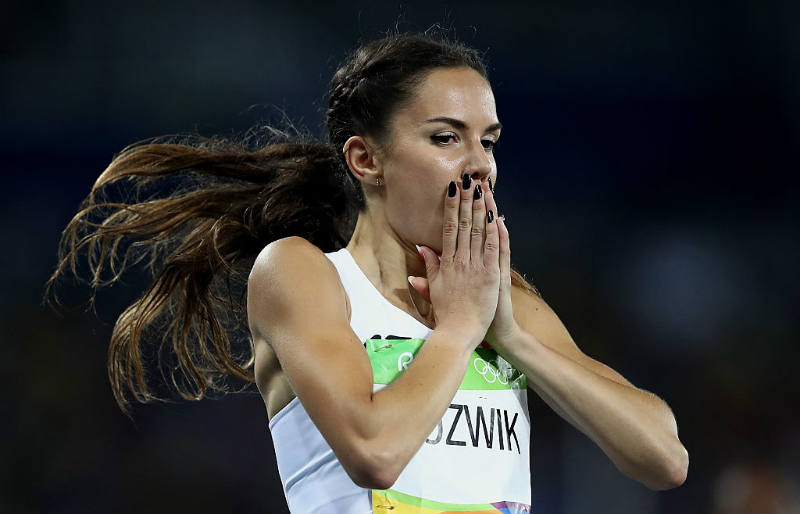Polish middle distance runner, Joanna Jozwik finished fifth in the women’s 800 final at Rio Olymics but she has claimed that she feels like a silver medallist.
After Caster Semenya from South Africa won the race, followed by Francine Niyonasaba from Burundi and Margarent Wambui from Kenya as the first and second runner-ups respectively, Jozwik remarked that she was proud to have finished as the ”first European” and the ”second white” in the race.
The controversial debate whether or not hyper-androgenic female athletics should be allowed to participate in the Olympics has resurfaced again. Hyperandrogenism is a condition which leads to the excessive production of testosterone.
Semenya is the best-known hyper-androgenic athlete to compete at Rio Olympics, but the runner-ups, Niyonsaba or Wambui aren’t identified as hyper-androgenic – however, Jozwik has echoed the sentiment of Great Britain’s Lynsey Sharp who finished in the sixth place and questioned the fairness of the including females athletes with high levels of testosterone in the contests.
The 25-year old runner completed the race with a time of 1:57.37, behind Canada’s Melissa Bishop.
Jozwik said, ”This season I had a lot of health complications and injuries, which is why I am very pleased with the result. I feel like the silver medallist. The three athletes who were on the podium raise a lot of controversy. I must admit for me it is a little that the authorities do nothing about this. These colleagues have a very high testosterone level, similar to male’s, which is why they look how they look and run like they run.”
She added, ”It hurts a bit. I saw Melissa Bishop who was very disappointed, she improved her personal best and was the 4th. It’s sad and I think she should be the gold medallist. But I am glad I’m the first European and the second white.”
Great Britain’s runner, Sharp, expressed similar disappointment as she said: ”I have tried to avoid the issue all year. You can see how emotional it all was. We know how each others feels. It is out of our control and how much we reply on people at the top sorting it out. The public can see how difficult it is with the change of rule but all we can do is give it our best.”
Following a successful case by the Indian sprinter Dutee Chand, the Court of Arbitration for Sport last year changed the rules that no longer required hyper-androgenic athletes to limit their testosterones.
AG


